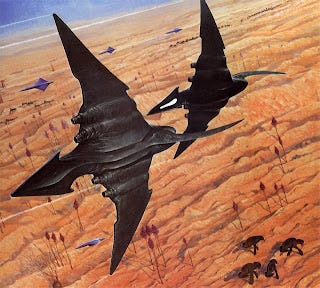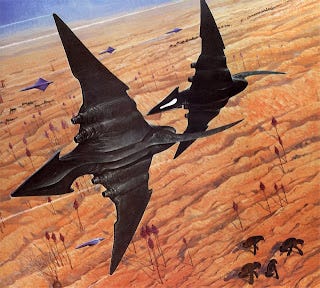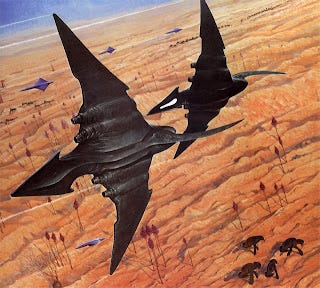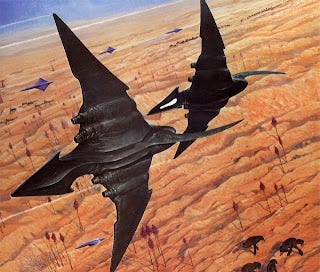*

Stranger Strange
Some go high and very low, none too different or the same you know, I know cos I've seen them come and go.
When summer comes the valley hums with medicine trucks on
the sidewalks, laid out those hands could be holy...
Stranger, stranger, hard earned familiar,
I've got no jokes,
And you hit me up for more than just my shrapnel and smokes.
Some go high and very low, no two different or the same you know,
I know cos I've seen them come and go...
Stranger, stranger, strange you should be listening like a river to
the end of my curdled song,
Nobody knows what madness could come along.
Now if you see a being borne into a trap you free it,
They know kindness when they see it,
Stranger Strange would it come if you could call it?
Some go high and very low, none too different or the same you know, I know cos I?ve seen them come and go.
It's quiet now, the streets are silent,
When music out of the arms of community flies...
Stranger Strange I knew I knew you,
Now the bug lights in the bank imbue you
With eyes like decals and a voice like an iron file.
Stranger strange, though the earth be an anvil,
I'm not waiting for the hammer to fall,
I'm not waiting for anything at all.
Augie March.

Oh well, in those distant shores, across different fates, across a sea of everything that might have been but never was; there lay a different realm. If not of peace, something else; tranquility, a different self, sober, respected, climbing high. They spoke movingly of the impossibility of getting there; to that infinite, ever receding shore, to a place where they were humans like any other and where left wing teachers, spruiking their disgust at conservatives after a lifetime of being on the public tit, talking about their stock holdings and their rentals at the same time as abhorring everyhone who disagreed with them, cluttered the balcony of the Mini-Cost Guesthouse in Chiang Mai. They were rarely rattled, but many things had changed. There were dark forces afoot; and he had reverted to envying the lives of others; just as he had sat so often outside the offices of News Limited in Surry Hills, Sydney, watching young men flash by in their smart cars; watching normal people, unbedeviled by addiction sweat and the terrible power of despair, living out their normal lives with a girlfriend at their side. The bar girl broke into a frenzy of dancing. He watched, briefly in love. Anything was possible.
Later in the night a flinty eyed hoh sat next to him and he ignored her; hello, she said, and he barely acknowledged her; and finally she went away. Yesterday he went to Burma on the visa run, crossing at Mae Sae. Instantly, as if entering Cambodia, everything was different, the touts more determined and more numerous, the beggars completely in your face. While Thailand was wealthy, industrious, well organised, advanced in its development, it was surrounded by chaos. Fragile elements in a distant shore, things to aim for, elements and hypocrisy, Gary arriving from Bangkok, tuk tuk drivers quickly accepting 50 baht, the katoys working in the darker alleys, the westerners out for a romp. The meetings were full of expat Americans and wreaking hypocrisy. They say God cures all. They were in a Buddhist country. If anyone was to say anything to upset their fragile denouement, their established patterns of belief, their complexly layered bullshit, all hell would come down. Hans lamented that another girl had asked him for money; what did he think? They slept with her for fun. I need your help, he demanded of some long suffering bastard, who simply recommended he stick to the lady boys; they were less mercenary, less trouble. This was a crazy place; where blokes processed nothing and repeated the same mistakes forever, where the mentally ill held rein.
The caffeine had built up to such ridiculous levels, following Pepsi after Pepsi at Hotshots, skanky enough for their ordinary looks and amorous intents; I get too excited, I have to chase the best looking girl in the room, I have to find someone to go home with, said Aussie John as they moved on to Spicy at 2am, the ritual passing from one club to the next. He crossed the border and saw the famous sign: The Golden Triangle City. And the other famous sign: Help Us All Live Without Drugs. The threat of the death penalty was no doubt something of a motivator. It had simply moved behind closed doors and higher up the food chain. Millions still changed hands. It just wasn't on the streets anymore. Everything had changed in Thailand; where the population drank whisky but barely touched a cigarette, where peace reigned in the open skies and the soft fall, that impossible fall, called out ever more strongly. He was on the roam, his own worst enemy. It was a precarious place to be; sober today, he snapped at some smartass, prosletysing yank. They couldn't help but boast. They couldn't help but spread their own brain washing to others. I've never had an original thought, they proudly declared.
If, as first indicated, life had gone entirely awry and he had awoken rip van winkle like at the end of everything; then equally there were other paths, where birds alighted in the morning trees and despair slunk into silver shadows, where the harvest moon hung heavy in the Chiang Mai night sky and the hard faced maid was everywhere, watching, waiting. I see people in your room, Gary's crazy laundress said, the one who didn't even remember what he had done to her that night; and so he did not mention she had begged him to come over; because there would disappear another few thousand baht. She wanted 500 baht for a taxi and another 500 return, Hans said; maybe the equivalent of $30. She is a working girl. She is a hoh, he spat. What, he thought they slept with him for love? How can they be so mad? A hotbed of mental health, Peter quipped; and he despaired of any solution; and knew why so many left. And the night sky fell into day; and everywhere silence rang around the rooftops, the doves gathered against the pink sky, he crossed the river into Burma and presented his passport to border control; and here in the north, once, only a few years before, such a mysterious north; he checked through the markets and laid claim to all that was human; for nothing but discontent would follow him all these days.
Nobody, nobody but you, went the song; along with: You Want Me, You Know You Want Me. These disco songs of the day were played in every club. The Thais danced in crowded packs. There was no way into the muffled beat, into the centre of the crowd, so he sat outside Spicy and yacked to an Englishman who had just spent several years bumming around Asia, yet another Englishmen with no apparent source of income; no doubt government benefits. It was astonishing how they managed it. Drunken farangs sprawled out next to the canal. Girls argued with the tuk tuk driver or drifted down to the next restaurant. The beat was ever merciful, but also hid the greatest flight, from reality, from pain, from every day life. There wasn't any way to get sorted. The drifting shifts of pain and discontent simply matched the streets to his interior; and so he walked more than was good for him and danced in random amongst the drunken Thais. He listened to the Australians and their pompous crap. They all had to tell you how much money they had, before they barely opened their mouth. And he watched the bulldust settle into another layer of discontent; listened to the expats tell their stories as if anyone could care, and heard the inching of the night pass into day and the sky into the ground; listened to the snarl of the traffic wind up through the ancient streets; and said simply enough: there is no mercy, there will be no relief, embrace the fractured crystal that has crept into the fabric of everything; for that is your destiny; documenting dysfunction, watching the dawn, escaping the thumping beat of late night discos, hearing, as if for the first time: You Want Me, You Know You Want Me.

THE BIGGER STORY:
http://www.economist.com/world/asia/displaystory.cfm?story_id=15819472
THE glare of public debate was a departure from Thailand’s usual brand of political dealmaking. And it hardly made prime-time entertainment. But the three-hour televised peace talks on the evening of March 27th between Thailand’s prime minister, Abhisit Vejjajiva, and his red-shirted opponents did at least suggest that a tense political stand-off on the streets of Bangkok might yet be resolved peacefully. Neither side, however, was ready to budge much; a second meeting on March 28th likewise failed to yield a compromise; and it is unclear if there will be more talks to break the impasse.
The red shirts, who have been camped out in the Thai capital for three weeks in a huge show of strength, want Mr Abhisit to call new elections at once. They were not impressed by his offer of a nine-month timetable to wind down parliament, in which Mr Abhisit’s Democrat Party heads a six-party ruling coalition. The two sides might yet close the gap on a timetable.
Mr Abhisit had pooh-poohed the popularity and legitimacy of the red shirts, so sitting down with their leaders was a concession. It came amid friction between the army, squarely behind Mr Abhisit, and the protesters, who accuse the top brass of dictating government policy. A spate of unsolved bombings of government and military facilities has added to the tensions. The talks on March 27th followed sabre-rattling by both sides, including a threat by demonstrators to storm an army base where Mr Abhisit has been holed up.
Bangkok’s royalist elite has been chastened by the red shirts’ pulling power. Far from being a rural army-for-hire, as critics claim, it clearly has plenty of urban supporters. Not all red shirts are fans of Thaksin Shinawatra, the fugitive former prime minister, who backs the movement. But they are ready to join forces to evict a government that, in their eyes, lacks a democratic mandate. To imagine, as some do, that the red shirts will all go home to tend their fields is wishful thinking, argues Chris Baker, a historian and biographer of Mr Thaksin. The movement has staying power and Bangkok’s snooty elites “have been kidding themselves,” he says.
A commitment to hold elections soon should end the protest. But Mr Abhisit’s coalition partners, mostly cast-offs from Mr Thaksin’s former party, want to stay in power—and build up campaign funds—for as long as possible. The generals have their eyes fixed mainly on their annual promotions in October, when the army chief must retire. Mr Abhisit told the red-shirt leaders that an election should be held after constitutional amendments were completed and a budget was passed in the autumn. That sounds like flim-flam. And an excuse might yet be found for further delay, beyond the end of parliament’s term in December 2011.
http://www.google.com/hostednews/afp/article/ALeqM5hHg2BN1Q01pGk-9sLIdE5aJlgKUg
"I think the country needs a cooling down period," that would allow dialogue between groups, "whether they are the Red Shirts or other groups," he said.
Supporters of ousted prime minister Thaksin Shinawatra, the Red Shirts say Abhisit's government is elitist and undemocratic because it came to power through a parliamentary vote after a court ruling removed Thaksin's allies from power.
The group, mainly comprised of the rural poor, first gathered more than two weeks ago in Bangkok's government quarter -- the latest in a string of rival street campaigns in the politically riven kingdom.
Before leaving for Manama, Abhisit hit out at Thaksin, who was ousted in a 2006 coup and now lives abroad to avoid a jail sentence for corruption at home.
The former policeman turned politician supports his movement with near-daily speeches by videolink but Abhisit urged the Reds not to be "pawns of Thaksin".
Thaksin has been in Sweden in recent days, after the United Arab Emirates asked him to leave his main base of Dubai, according to Thai vice foreign minister Panich Vikitsreth.
The cabinet on Tuesday extended for a week a harsh security law that allows the military to take control of a 50,000-strong force deployed across Bangkok and surrounding provinces to monitor the rallies.
While the demonstrations have been peaceful, a series of small explosions have hit politically significant sites and army buildings, injuring more than a dozen people in the last four days.
Police said a hand grenade was thrown Tuesday night in Bangkok at a charity set up by the king's top aide, General Prem Tinsulanonda, whom the Reds believe masterminded the 2006 coup, but nobody was hurt.
Referring to the possibility of fresh demonstrations, Abhisit told the Manama news conference that as far as his government was concerned, "we will ensure the demonstrations do not lead to violence."
About 80,000 Red Shirts rallied on Saturday and forced troops to retreat from security posts in the heart of Bangkok. But police said only 16,000 protesters remained at their rally ground on Monday.
The Reds have staged a series of dramatic stunts in their bid to force Abhisit out, including throwing their own blood at his office gates.
Abhisit had ruled out talks while the protesters remained on the streets, but changed his mind on Sunday, a move analysts said might hint at a weakening of his support by the establishment.
http://images.google.com.au/imgres?imgurl=http://blog.kierankelly.net/wp-content/uploads/skewer.jpg&imgrefurl=http://www.sci-fi-o-rama.com/category/artist/wayne-barlowe/&usg=__D2ch1cRDeLaeqQZZ1mmSsX8O-Mk=&h=541&w=600&sz=172&hl=en&start=27&itbs=1&tbnid=EsstbIIrVW_p4M:&tbnh=122&tbnw=135&prev=/images%3Fq%3Dsci%2Bfi%2Bart%26start%3D20%26hl%3Den%26sa%3DN%26gbv%3D2%26ndsp%3D20%26tbs%3Disch:1
Skewer. Wayne Barlow.



